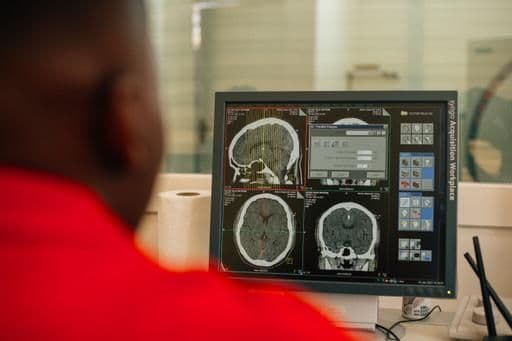by Ernest Appiah, Instant Rad co-founder
Lagos, 2am. A car accident takes place on one of the main highways with more than 30 people injured. The patients are sent to one of biggest hospitals in Nigeria — Reddington. But here, most of the radiologists who read imaging scans for them are outside the country, mostly in the UK. But the patients needed urgent medical reports! The relatives hear about Instant Rad and upload the scans which were generated at Reddington Hospital on the Instant Rad platform. By logging each scan as an emergency case, a remote radiologist gets notified, reads the pictures and generates medical reports within 15 to 30 minutes. This is how Instant Rad was able to save the lives of about 30 people.

A major issue arises whenever there is an emergency and on-site doctors need a radiologists’ diagnoses before commencing treatment. Patients’ lives are put at risk and they could potentially die in circumstances that could have been avoided.
But why is this the case?
In the field of medical imagery, here are the challenges the Ghanaian healthcare system faces:
1. There are too few radiologists. Ghana has 76 registered radiologists distributed across the whole country. This means one person goes to 15 to 20 hospitals, giving them a chance to only revisit each one after a week or two. They have too much work and are not always able to respond to all the cases, increasing the likelihood of mortality or serious complications.
2. Radiology is a very specialised field with many subspecialties for different parts of the body. But because of the low number of radiologists, one person has to read images for every body part, and due to lack of specialised knowledge, some patients end up dying.
3. Like everybody else, radiologists want to make more money, and because they are in high demand, they have a huge opportunity to do so. Unfortunately, the stressful working conditions cause them to rush their reports, thus contributing to mixed diagnoses.
Radiography vs. Radiology: What’s the Difference?
4. Radiographers are the ones who scan and produce the medical images and send them to radiologists. Sadly, some of them do not have the required technology, and use their phones to take pictures. This can cause any of three problems:
5. When patients report to the hospital again after some months, their previous scans need to be consulted. Because most institutions do not have the appropriate storage facilities, they delete previous scans from their systems, which could result in misdiagnosis.
“A general practitioner is not a radiologist and thus not specialised in advising on radiological images. A diagnosis in this case can be very dangerous!”
Fortunately, Instant Rad has a single-platform solution.
1. With Instant Rad’s technology, radiologists can be in the comfort of their homes and receive quality images of the scans, report faster than ever before and report more accurately. The platform also makes it easy to connect to sub-specialists, which is important to most hospitals with in-house radiologists of one type.
2. Another issue Instant Rad addresses is data transfer. With its solutions, all information is available and accessible on one platform. As soon as radiologists are done reading medical scans, their reports are ready to download, which improves reporting time. Hospitals also no longer have to have local infrastructure, which can be very expensive.
Instant Rad reduces the turnaround time from 3 – 30 days to 4 hours, and to 30 minutes in emergency cases.
3. With Instant Rad software, there is also an audit trail that tracks everyone who has come in contact with medical imagery data, thus improving accountability. This way, patient information is securely transmitted and protected.
4. Instant Rad’s services also extend to creating opportunities for radiographers and radiologists to receive regular training and up-to-date industry knowledge from top industry professionals from Ghana and beyond. Every month Instant Rad runs two sessions, offering new concepts and topics in their field, including data protections rules and measures.
One opportunity these solutions have revealed is the need for interoperability among healthcare institutions in Ghana. This refers to the ability of different information technology systems to communicate, to exchange data accurately, effectively and consistently, and to use the information that has been exchanged.
Using the newly implemented national ID cards, Instant Rad can act as the central point for integrating all diagnostic centres and accessing the medical information of different patients from anywhere in the country. This could totally revolutionise Ghana’s healthcare system and we look forward to implementing our services nationwide!


